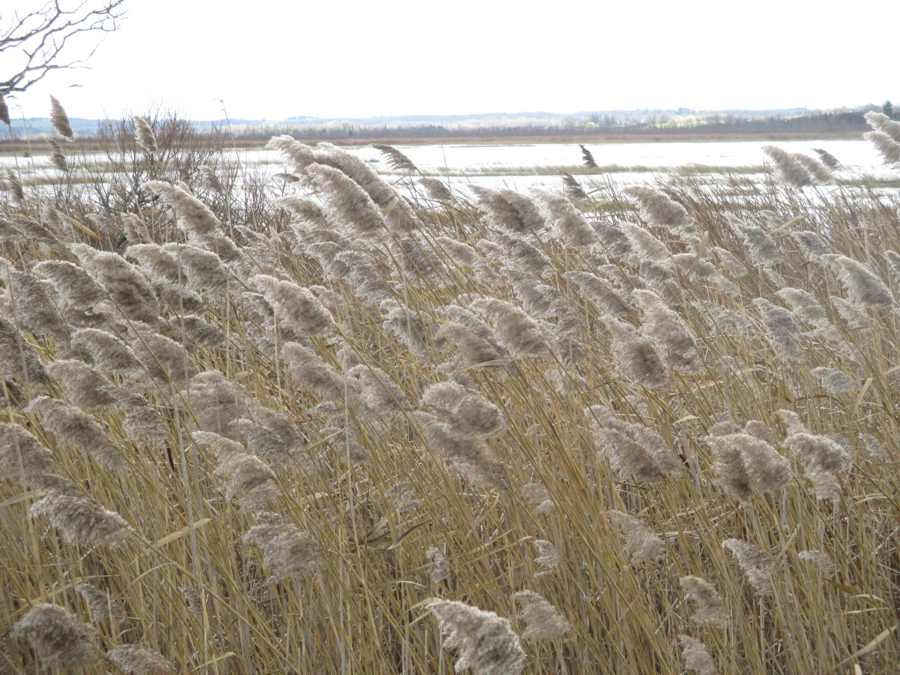Winter Safety Statement
- Dec 11, 2024
- 3 min read
Updated: Dec 13, 2024
As winter makes an appearance, Central Lake Ontario Conservation Authority (CLOCA) is here to provide winter safety information with tips and resources to ensure residents can safely enjoy the winter season outdoor activities.
Flooding can happen at any time of the year, including the winter, and it is important to know the risks during each season.
Winter Safety
Always stay away from frozen water bodies and ice around dams and channels.
Ice conditions, in and around rivers and large bodies are hard to predict and should be considered unstable.
Skating on natural bodies of water always comes with significant risks such as inconsistent ice formation, underwater currents, and obstacles like rocks or partially submerged debris. These factors can create unsafe conditions even if the surface appears solid.
Warm weather and rainfall during the winter months can raise water levels in rivers, lakes, ponds, and cause ice jams, making ice conditions even more unstable.
Keep a safe distance from rivers, lakes, and ponds in the winter months as water levels can change very quickly, and riverbanks can become slippery, unstable, and erode.
Chunks of ice in a river can jam up and release to downstream areas without warning, often in a very short period of time.
Download this Seasonal Factsheet to learn more about seasonal flood safety tips.

Be Prepared
CLOCA operates a Flood Forecasting and Warning Program that monitors weather forecasts and river conditions on a continuous basis and issues flood messages when flood risk is high.
For more information about CLOCA’s Flood Forecasting and Warning Program and to sign up to receive flood messages today, visit: https://www.cloca.com/flood-warning-forecasting.
Key Winter Safety Tips
CLOCA wants the community to consider the following safety tips to minimize risks associated with winter weather:
Maintain a safe distance
Avoid getting too close to riverbanks and other water bodies, even if the ice appears thick.
Always obey safety signage
Do not walk, skate, or drive on ice-covered rivers, lakes, or ponds unless officially designated as safe by local authorities.
Stormwater ponds were not made for ice skating. These ponds often have thinner ice and more cracks due to road salt and snowmelt. Slopes near ponds can also be slippery and dangerous.
Limit recreational activities near water
Avoid areas near ice jams and stay off stormwater ponds. As a reminder, CLOCA does not monitor ice safety conditions. Tailor your winter outdoor activities to trails at CLOCA Conservation Areas or your local parks. Residents looking for opportunities for skating should confirm safe leisure options with their local municipality.
Be alert near dams
Stay away from dams, channels and reservoirs. Ice near dams can be unpredictably thin and water levels may fluctuate, increasing the risk of ice failure.
Know what to do in case of an emergency
If someone is in danger or has fallen through ice, immediately call 911. Do not attempt a rescue as it can be extremely dangerous.
Stay Informed
For information about regional water levels and seasonal changes, please contact your local Conservation Authority:
Central Lake Ontario Conservation Authority: (905) 579-0411
Toronto and Region Conservation Authority: (416) 661-6514
Lake Simcoe Region Conservation Authority: (905) 895-1281
Conservation Halton: (905) 336-1158
Credit Valley Conservation: (905) 670-1615
Ganaraska Region Conservation Authority: (905) 885-8173
Nottawasaga Valley Conservation Authority: (705) 424-1479
Kawartha Conservation: (705) 328-2271




Comments